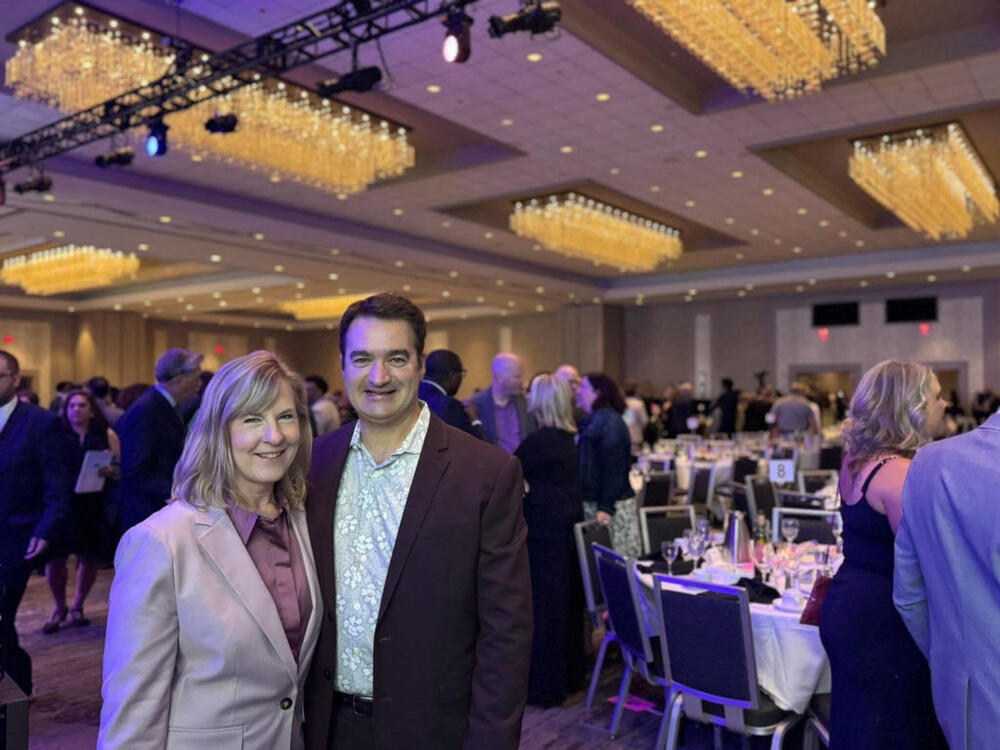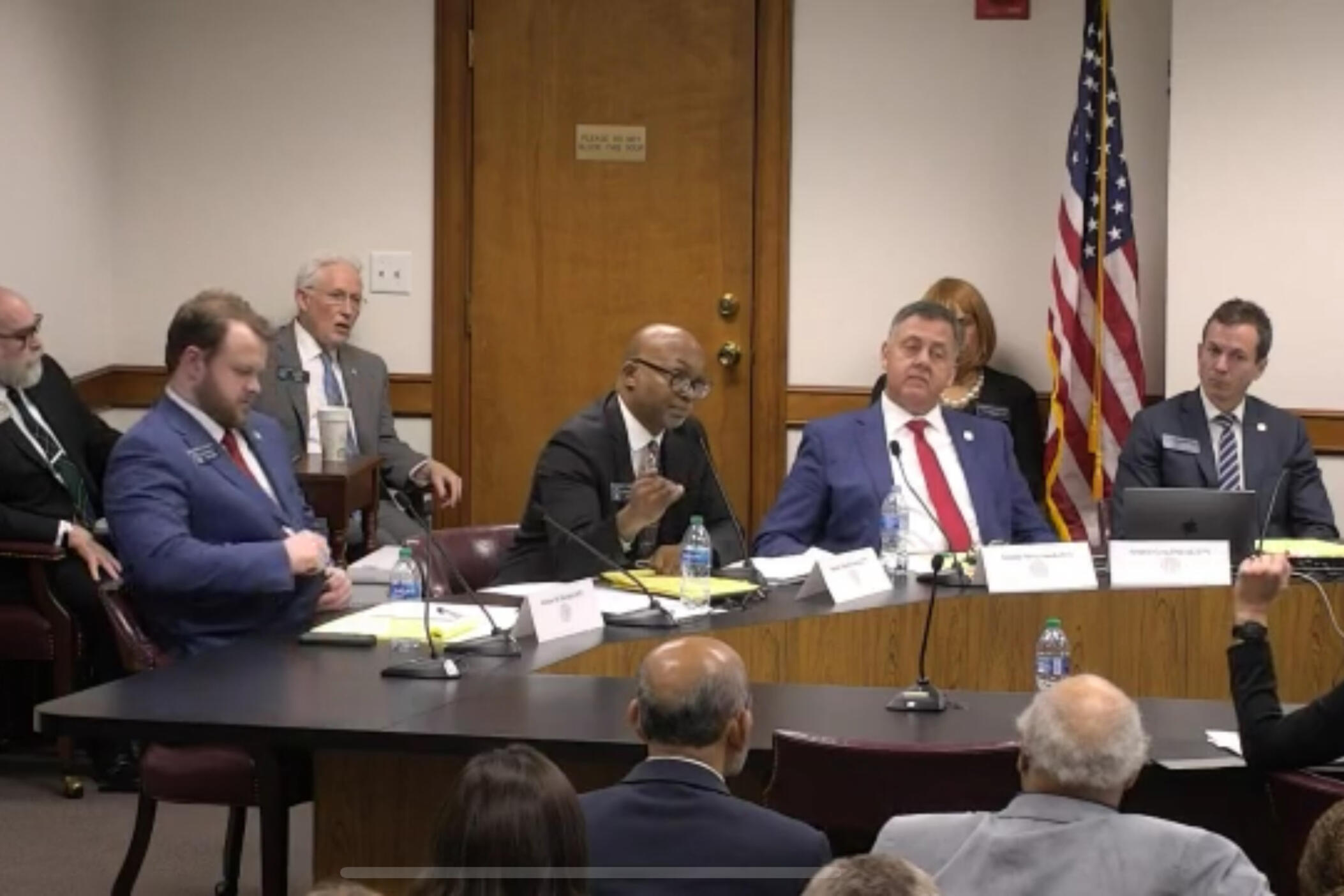
Caption
Melissa Hortman, a former assembly speaker and her husband, Mark, pose for a photograph at the annual Humphrey-Mondale Dinner in Minneapolis, June 13, 2025. A gunman posing as a police officer killed the senior Democratic state assemblywoman and her husband on June 14, 2025 in an apparent "politically motivated assassination."
Credit: Minnesota House DFL Caucus/Handout via Reuters.



